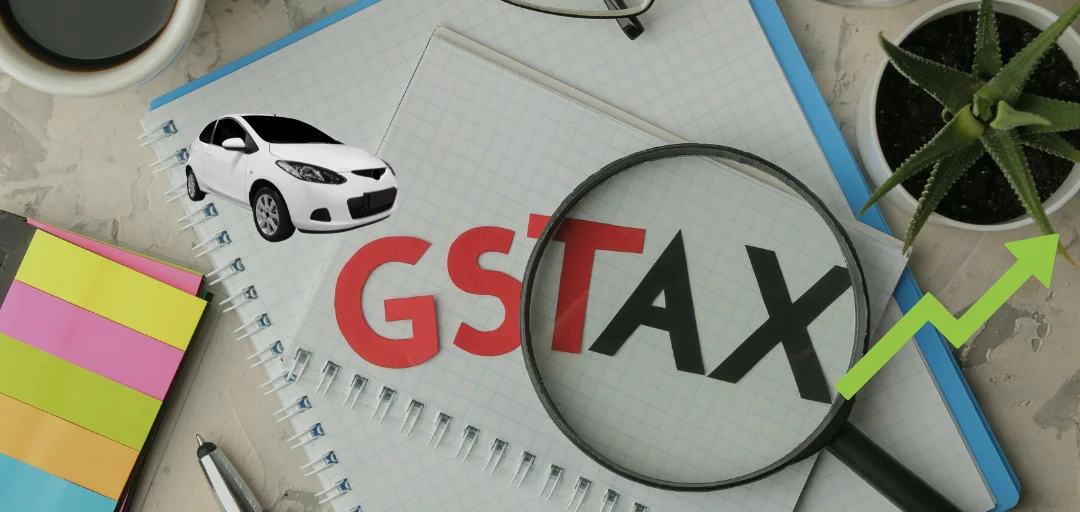GST Council May Increase Tax on Old and Used Vehicles, Including EVs, to 18%
The Goods and Services Tax (GST) Council is reportedly considering a tax increase on old and used vehicles, including electric vehicles (EVs), from the existing 12% to 18%. This proposal, if implemented, could significantly impact both the pre-owned vehicle market and the overall automobile sector in India. The move is aimed at streamlining tax rates and potentially increasing government revenue from this segment.
Why the Tax Increase Is Being Considered
The GST Council periodically reviews tax rates to align with economic realities and revenue needs. The increase from 12% to 18% is being considered for the following reasons:
Revenue Augmentation:
With the government focusing on increasing revenue to meet fiscal demands, raising the GST rate on used vehicles is seen as a potential source of additional funds.Addressing Market Discrepancies:
The pre-owned vehicle market has seen exponential growth, especially post-pandemic. A uniform higher tax rate could bring greater parity and compliance within this booming sector.Encouraging Sustainable Practices:
By increasing taxes on old vehicles, the government may indirectly discourage the continued use of less eco-friendly, fuel-based vehicles. This aligns with India’s commitment to reducing its carbon footprint.Focus on EV Adoption:
Though electric vehicles are included in the proposed tax increase, this could also spur a shift toward newer, greener vehicles through subsidies or other incentives.
Impact of the Tax Increase on the Used Vehicle Market
1. Price Hike for Consumers
- Buyers of second-hand vehicles will likely face higher costs due to the increased GST rate. For example, if a used car is priced at ₹5,00,000, the GST amount will rise from ₹60,000 (12%) to ₹90,000 (18%).
- This may discourage purchases in the pre-owned vehicle segment, especially among middle-income buyers.
2. Effect on Dealers
- Pre-owned vehicle dealers, who operate on tight margins, may face reduced demand. Higher taxes could lead to inventory buildup and operational challenges.
- Dealers might need to adjust prices or offer discounts to remain competitive, further straining their profit margins.
3. Shift in Consumer Preferences
- Higher taxes on old vehicles might prompt consumers to explore new vehicle purchases, especially if the government provides incentives for electric or hybrid models.
- This could hurt the used vehicle market in the short term while benefiting manufacturers of new vehicles.
4. EV Market Impact
- The inclusion of EVs in the proposed tax increase has raised eyebrows. Electric vehicles are seen as a key solution to reducing vehicular pollution, and higher taxes could slow their adoption in the used vehicle segment.
- Industry experts suggest that the government may consider alternative measures to support EV adoption alongside the tax increase.
Industry Reactions to the Proposal
The automobile industry has expressed mixed reactions to the proposed tax increase:
Pre-Owned Vehicle Dealers:
Many dealers argue that the increase will hurt demand for used vehicles, which have already seen price hikes due to rising input costs and supply chain disruptions.Electric Vehicle Advocates:
EV stakeholders believe that taxing pre-owned electric vehicles at 18% sends conflicting signals about the government’s commitment to promoting clean energy transportation.Consumer Advocacy Groups:
Consumer groups fear that higher taxes on old vehicles will disproportionately affect middle-class families who rely on affordable transportation options.
Government’s Perspective
The government maintains that the proposed tax increase is part of a larger strategy to optimize GST collections and ensure fairness across sectors. With the automobile industry being a significant contributor to India’s GDP, the Council is expected to weigh the economic and environmental impacts carefully before making a final decision.
What This Means for You
If You’re a Buyer:
- Plan your purchase carefully if you’re considering a used vehicle. The potential tax increase could make second-hand vehicles more expensive in the coming months.
If You’re a Dealer:
- Prepare for changes in consumer behavior. Focus on promoting vehicles with lower operational costs, such as fuel-efficient or hybrid models, to mitigate the impact of higher taxes.
If You’re an EV Enthusiast:
- Stay updated on government incentives and subsidies that may offset the increased tax burden on pre-owned electric vehicles.
Conclusion
The proposed GST tax increase on old and used vehicles, including EVs, is a significant policy change that could reshape the dynamics of India’s automobile market. While it aims to boost government revenue and promote sustainable practices, its potential impact on consumers, dealers, and the overall market remains a topic of debate.
As the GST Council deliberates on this proposal, stakeholders across the board are keenly watching the developments. Whether you’re a consumer, dealer, or industry player, staying informed about this possible change will be crucial in navigating its implications.
Our GST Services For E-commerce Sellers

All E-commerce Tax services
E-commerce tax services help online sellers navigate GST registration, compliance, return filing, TCS management, tax planning, and audits, ensuring efficient tax management and legal compliance.

GST Filing
GST filing is the process of submitting tax returns to the government, detailing sales, purchases, and taxes paid or collected, ensuring compliance with GST laws.

GST Registration
GST registration is the process where businesses obtain a GSTIN from the government, allowing them to collect taxes, claim input tax credits, and comply with GST laws.



